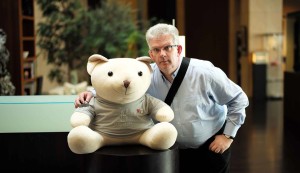Pricing is a filter, no more, no less…
I have been involved in sales and marketing for over 30 years and remain amazed at how many businesses and business owners have poor awareness of pricing. A common mistake is to believe that the cheaper the price financially, the more customers you will attract. All pricing is a filter and different price points will filter in and filter our specific client interest.
Pound Wars and Celebrity attraction
In the UK there has been a surge in retail stores offering all items for a pound. The BBC ran a great programme on this called “Pound Wars” It was fascinating to see how both businesses and customers responded. Clearly the focus was primarily on the idea that “bargains” were on offer. In the world of personal development some businesses offer “free weekends” which of course are geared to upsell other courses. At the other end of the spectrum there is some quite extraordinary pricing. I have come across supposed “celebrity” trainings where a small number of attendees pay thousands for “coaching”. In one recent newspaper report about the trainer one of the very small group requested and was given a full refund as in his opinion the trainer didn’t deliver what was promised.
Practitioners, Coaches and Trainers
Of course as a business or a trainer you will never please everybody, but pricing will filter in a particular type of client. In coaching and therapy many practitioners also make the mistake of charging minimal amounts which they imagine is an incentive for potential customers. Often such coaches then are unable to invest in their own marketing and websites which means they find themselves in a catch 22 situation resulting in poor business success. When I run events in USA, Asia and Europe I always get coaches asking about how to get more clients. Many have a real lack of pricing awareness and have not factored in basic common sense in deciding how to price their time.
Many trainers in particular are totally delusional in how they price trainings and partly this is because they have never learned basic business skills. Years ago an NLP newsgroup owner attempted to run an overseas event and promoted it like a holiday brochure. Nothing wrong with this in principal of course, but it was a confused message and not especially well thought through. Some NLP and personal development trainers seem in my view a little too enthusiastic about imagined personal status and this reflects in how they price events and products. Yes, I am all for people promoting trainings in an attractive manner, but often businesses are presented as multi million pound concerns which of course is very far from the truth! Often although they may have worked for a company in the past as an employee, they have never run a business and had to deal with pricing. They also didn’t understand the difference between “working in the business” and “working on the business”
Cost v Price and always read the small print…
Anyone who knows me, knows that once I find a great supplier or host I will stick with them as well as recommending other customers. The “price” is the financial element to any exchange, “the cost” is everything that occurs in the trade. The price in isolation may be very attractive, but the overall cost can prove extremely expensive. For example, a company that cuts margins to attract potential customers can then find they can’t deliver as they have not factored in other elements that allow them to fully meet customer expectations.
I also always advise customers to read the small print. With online sales businesses can offer a seemingly great unit price, but then crank postage and packing to a disproportionate extent. The same strategy has been used in travel sales, although this has now been highlighted and companies have been forced to be more transparent in adverts. For personal development courses always read any “license agreement” to know what you are agreeing to…
Final Thoughts
Pricing is a filter, no more know less. It’s probably to once again remember the classic advice “Caveat Emptor” or “Let the buyer beware” The other common advice is “If it sounds too good to be true, it probably is too good to be true”

Also see http://www.nickkemptraining.com/the-power-to-influence/